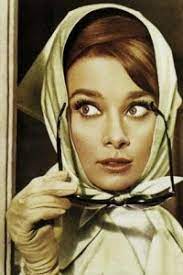
Is rejection of a hijab now discrimination based on religion?
Thijl Sunier betoogt naar aanleiding van het onderzoeksrapport in het tijdschrift European Sociological Review naar discriminatie op de arbeidsmarkt in drie Europese landen, waaronder Nederland (NRC 28/7/22 opinie), dat NRC met het hoofdartikel hierover verwarring zaait door dragers van een hijab (hoofddoek) te associëren met migratie. Naar mijn mening is die constatering niet juist, maar ook is de stelling, dat een afwijzing vanwege het dragen van een hoofddoek discriminatie is op grond van religie, te kort door de bocht.
Het gaat om deze bewuste passage: “Moslima’s met hoofddoek worden bij sollicitaties veel vaker afgewezen dan vrouwen zonder migratieachtergrond, maar ook vaker dan islamitische vrouwen die géén hoofddoek dragen. Die weer een vertaling is uit de conclusie van het Engelstalige rapport: “In these two countries, wearing the hijab while applying for jobs not only led to a disadvantage relative to native majority women but also relative to unveiled Muslim women”.
Thijl Sunier argues in response to the research report in the journal European Sociological Review into discrimination in the labor market in three European countries, including the Netherlands (NRC 28/7/22 opinion), that NRC is sowing confusion among wearers of a hijab ( headscarf) with migration. In my opinion, that statement is incorrect, but also the statement that a rejection because of wearing a headscarf is discrimination on the grounds of religion, is too simplistic.
It concerns this conscious passage: “Muslims with a headscarf are rejected much more often in job applications than women without a migration background, but also more often than Muslim women who do not wear a headscarf. Which is again a translation from the conclusion of the English-language report: “In these two countries, wearing the hijab while applying for jobs not only led to a disadvantage relative to native majority women but also relative to unveiled Muslim women”.
https://academic.oup.com/esr/advance-article/doi/10.1093/esr/jcac032/6633824?login=false
Ja, het wordt zeker een woordspelletje. Volgens mij is “vrouwen zonder migratieachtergrond” een goede vertaling van “native majority women” afgezet tegen de bijzin, islamitische vrouwen die geen hoofddoek dragen (unveiled Muslim women).
Thijl Sunier kan er een heel betoog aan wijden, dat NRC door deze tekst een rol speelt in de beeldvorming van moslims, maar volgens mij is dit ‘gewoon’ een goede vertaling van de Engelse zin in het rapport. So, don’t shoot the messenger.
Thijl Sunier merkt vervolgens op, dat een afwijzing van een moslima met hoofddoek een op grond van de grondwet verboden discriminatie is. Dat is iets te kort door de bocht, gezien een recent arrest van de Europese rechter uit juli 2021. Het dragen van een hoofddoek op het werk mag onder voorwaarden worden verboden.
Yes, it will be a word game for sure. In my opinion, “women without a migration background” is a good translation of “native majority women” compared to the subordinate clause, Islamic women who do not wear a headscarf (unveiled Muslim women).
Thijl Sunier can make a long argument that NRC plays a role in the image of Muslims through this text, but I think this is ‘just’ a good translation of the English sentence in the report. So don’t shoot the messenger.
Thijl Sunier then notes that a rejection of a Muslim woman wearing a headscarf is discrimination prohibited by the constitution. That is a bit too simplistic, given a recent judgment by the European judge from July 2021. Wearing a headscarf at work may be prohibited under certain conditions.
https://curia.europa.eu/juris/liste.jsf?num=C-804/18
Dus dat kan bij de sollicitatie best een – verborgen – punt zijn geweest. Ik vind, dat de werkgever dan wel open kaart moet spelen. Maar het punt wat Thijl Sunier eigenlijk wil maken is dit: wen maar aan het beeld van de jonge, ambitieuze moslima met hoofddoek (hijab). En daarmee ben ik het met hem eens.
So that may have been a – hidden – point during the application. I think that the employer should play an open card. But the point Thijl Sunier actually wants to make is this: get used to the image of the young, ambitious Muslim woman with a headscarf (hijab). And with that I agree with him.
Ricky Turpijn



